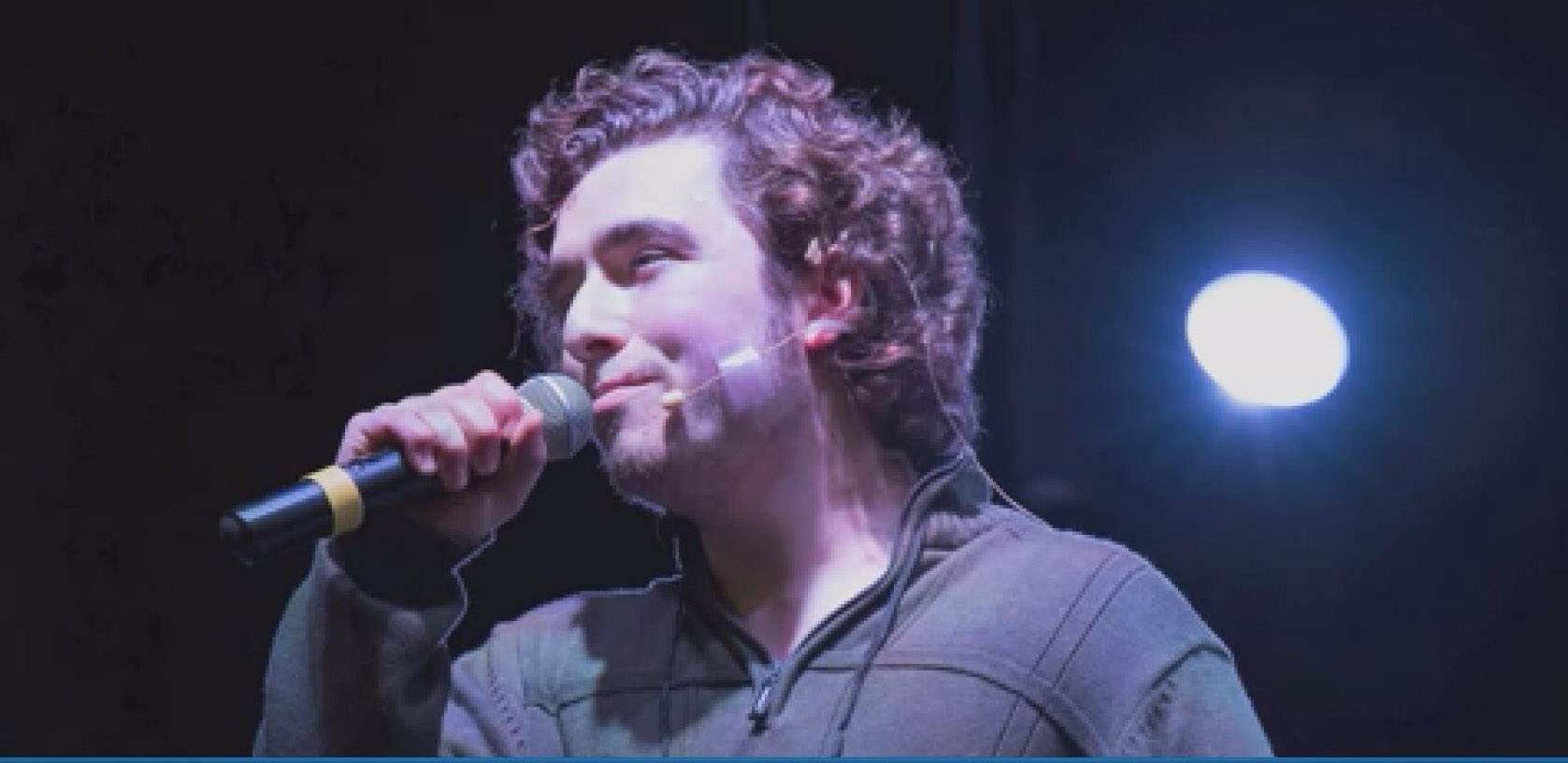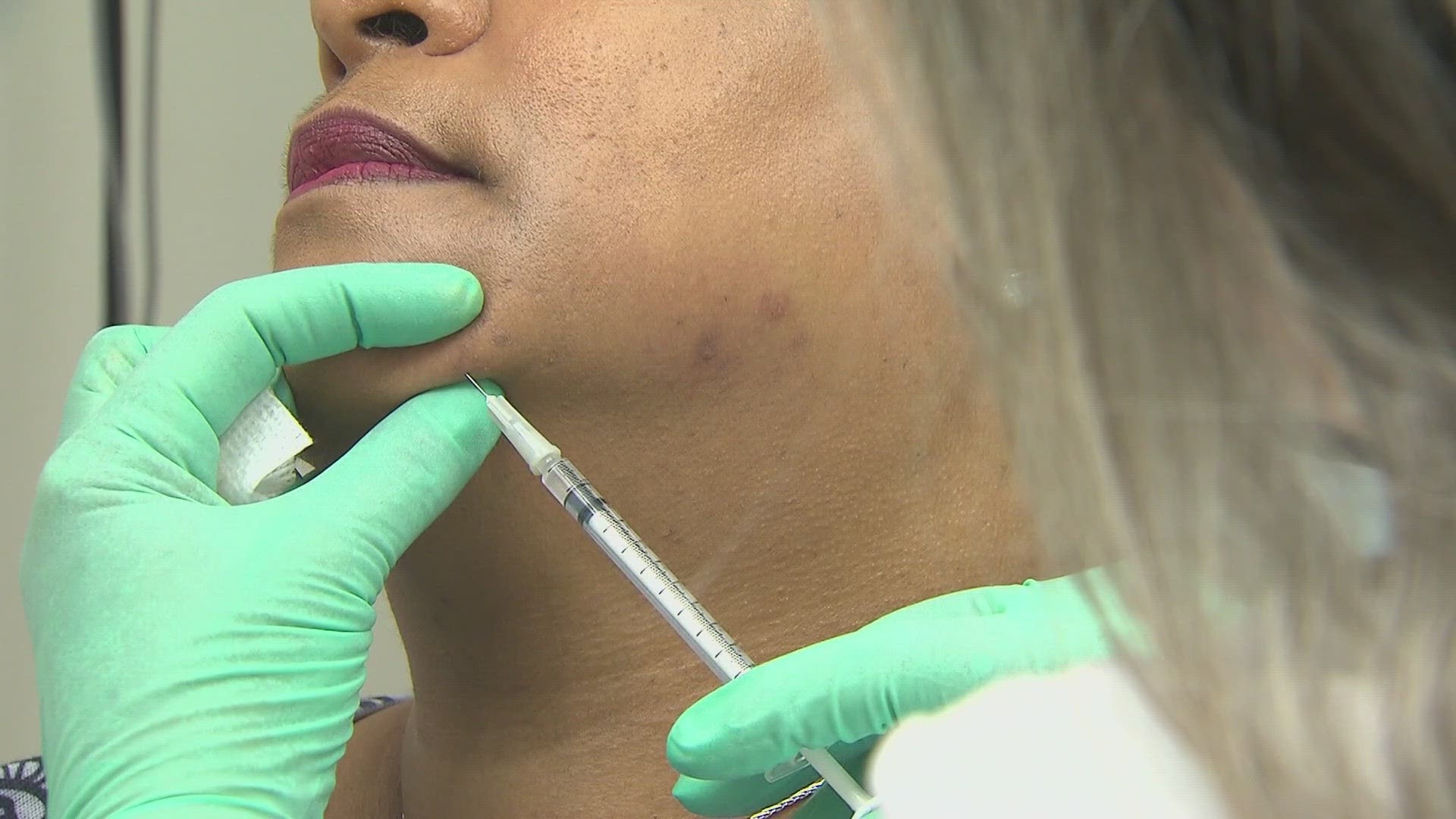WASHINGTON (WUSA9)-- Many of you know Nikki Burdine. She's a reporter on WUSA9's Wake Up Washington morning show.
What you don't know, is that Nikki has Tourette Syndrome.
Tourette's is a neurological disorder. It's characterized by involuntary movements or vocalizations called tics.
This is not something Nikki talks about a lot. It's not something many people talk about. In fact, the times you hear about Tourette Syndrome, it's usually a punch line.
The guy screaming obscenities uncontrollably. Not all people with Tourette's scream out profanities. But that's one of the stereotypes people with Tourette Syndrome face. Tourette's manifests itself in different ways.
Meet Daniel Derrico, a young man Nikki Burdine met at a Tourette's Syndrome conference. He was simply inspiring.
When you look at Daniel, you see a 19-year-old who loves music. What you don't see, is Daniel 'ticing' out uncontrollably. Just a few years ago, Daniel's tics were debilitating.
"It was something that took over my body and my mind," says Daniel.
He was unable to go to school, eat, or function on his own. He was eventually hospitalized.
"They were painful. I mean there's pictures mom took of my arms, friction burns. I was not eating. I got down to about 100 pounds, because my tics were so severe and they were exhausting I was losing so many calories from doing them. It really kind of broke me down."
With therapy and medication, Daniel's tics are now minimal.
"I still have a tongue-biting tic. I bite my tongue and I have to get that just right feeling. And then very once in a blue moon, I get this eye bugging tic."
Finding his passion was also key to getting Tourette's under control.
"I think that's something very amazing and interesting with people with Tourette's is whether you're a newscaster like yourself, a US World Cup goalie like Tim Howard, or a singer like David Pittman. Whenever they're in their zone, with something they love and they're passionate about, their tics are nonexistent."
Daniel takes his message to schools through a program called "Same Sky." It's a group of like-minded but very different people. Their goal is to teach tolerance, empathy and acceptance; because everyone has something. The performers all have something that sets them apart, whether it be down syndrome, Lyme disease, obsessive compulsive disorder, brain damage, fetal alcohol syndrome, anxiety, autism, Asperger's or depression.
The show is their way to stand out and fit in; to not live by other's labels, instead, to live past them.
"Now a lot of people couldn't tell by just looking at me today, but I've actually been through a lot in the past few years. I have Tourette Syndrome. My tics eventually got so bad that I could not even go to school, brush my teeth, shower, or barely function on my own," Daniel says on stage as part of his performance. "I'm so blessed to be here today to share my story with you all."
MORE: A Place to Be
The "Same Sky" project is part of an organization called, "A Place to Be." They have several private shows at high schools this month, and their next public performance is at the Rust Library in Leesburg on May 28.
MORE: Same Sky
According to the National Institutes of Health, "while Tourette's Syndrome can be a chronic condition with symptoms lasting a lifetime, most people with the condition experience their worst tic symptoms in their early teens, with improvement occurring in the late teens and continuing into adulthood."


